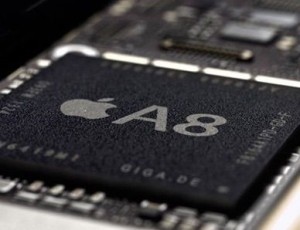News on intricate relations about Apple and Samsung seem to have no end. In past, Apple has heavily relied on its rival, Samsung, for manufacturing all sorts of components. And now Apple has allegedly said to land back to Samsung, which previously tried to diversify the sources. This time it is for the manufacturing of Apple’s next generation processors – Apple A9.

With iPhone 6 processors, A8, Apple found an alternative supplier for majority of the chips. Apple decided to rely heavily on TMSC(Taiwan Semiconductor Manufacturing Co. Ltd.) using its 20nm process for manufacturing the A8 chips. Samsung was said to be handling about 30 percent of the A8 chips in the latest generation of iOS devices while majority of them were under TMSC. Prior to A8, Samsung used to produce majority of the chips and other components for Apple products.
While Apple was hoping to diversify its supply chain sources for A9 too, it had to rely solely on Samsung again. This is because Samsung holds a technological advantage over other manufacturers when it comes to manufacturing process. Samsung has said to achieve transistor size of 14nm on chips. All these advancements come as result of Samsung investing heavily in its chip development units and research, of around $14.7 billion, to reinvigorate its capabilities. On the other hand, TMSC, is said to land a deal with ARM on its latest Cortex A72 by using 16nm manufacturing process.
In the times when Samsung’s smartphone division is looking at a decline in earnings, its semiconductor division has helped to balance some of the losses. Samsung’s chip manufacturing division earned about $2.7 billion in the last quarter. This makes it obvious that relations, like the one with Apple, is of high value to the company.
Samsung has not yet officially confirmed about any such deals. But Dr.Kinman Kim, president of Samsung semiconductor division, said that Samsung is expecting profits from this division to grow in coming years, thanks to its 14nm chip technology.
Rumors have also surfaced suggesting the incorporation of A9 chips in the iPad Pro and iPad Air/Mini. Very little is known about Apple’s next generation iPhone, which is likely to be called as iPhone 6s. But based on the patterns of past releases and application of its innovative patents, one might strongly believe that Apple is all set to use the A9 chips along with other awe striking feature upgrades.
